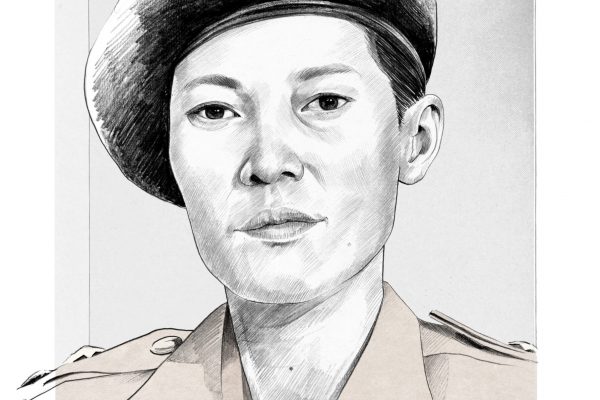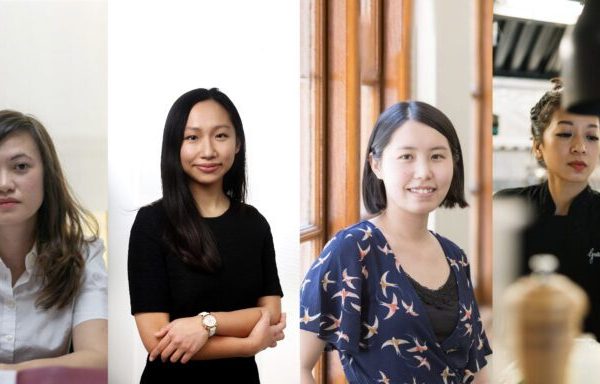Local Voices: LGBT+ Issues are a Community Matter
WORDS Chermaine Lee, Rafelle Allego and Kary Lam
PHOTOGRAPHY Karma Lo and António Sanmarful
Hong Kong
Love Your Neighbours
Toby* is gay, but he hasn’t come out to his Christian family yet. Here’s why:
“In secondary school, I read online forums and watched different types of heterosexual and gay porn, but I didn’t completely realise I was gay back then. After taking identity and gender classes at university, I knew I was not straight.
“I entered my first relationship with a man when I was 21. My friends didn’t react much since they are quite liberal. Since then, I haven’t had a problem telling new friends that I am gay.
“Still, I keep my sexual orientation a secret from my family and my secondary school friends. Growing up in a Christian family makes it difficult. I suspect that my secondary school friends are homophobic, so I hang out with them less often.
“Few churches are gay-friendly in town, as it [homosexuality] has always been a taboo in Protestantism. They think that sex between men is disgusting and sinful. I am gay and I believe in God. Christianity is all about love: love your neighbours and love your enemies. I am sure God loves me.”
*Name has been changed at the request of the subject.
Legal Battles
Professor Brenda Alegre, a gender studies lecturer at the University of Hong Kong, doubts the city will recognise same-sex marriage anytime soon:
“Same-sex marriage might be possible in Hong Kong, but it will take some time. In the case of Angus Leung and his husband [who won a landmark lawsuit in favour of same-sex spousal rights], the couple won their lawsuit and this outcome should be extended to the rest of the population.
“As Hong Kong is still a very conservative place, I am not sure if legalisation will be possible anytime soon. Conservative groups and legislators, and perhaps influential religious groups, could be among the hurdles.
“Hong Kong is not 100 per cent gay-friendly. People are diplomatic about the issue, but being friendly is another matter.
“I would say that Thailand, the Netherlands and Canada are much friendlier because those countries have inclusive policies and laws. People should understand that we all deserve respect, acceptance and equality under the law.”
Family Affair
Mimi Wong, a transgender documentarian, hopes to one day reconnect with her estranged son:
“For years, I didn’t know the word ‘transgender’ existed or that it described me. I simply thought I was weird, an outcast. I dared not tell anyone about my feelings – that I identified as a woman, rather than a man.
“When I was over 50 years old and married to a woman, I secretly started dressing as a woman on weekends and lied to my wife about it. She found out and couldn’t stand me. She asked me to leave.
“That was over 12 years ago. After I got kicked out, I emailed my son to tell him that I had a sex-change operation, but he never replied. He still refuses to talk to me. I embarrass him, but I hope someday we can be friends. He doesn’t have to tell anyone I am his dad. I just want to resume contact with him.
“The Hong Kong government does not support us at all. They researched gender identity a few years ago but the report still hasn’t been released. I don’t think they want to help the LGBT+ community.”
Lagging Behind
Violencee Chan, a lesbian and online influencer who runs a YouTube channel called 暴力 Violencee 生活誌, says the city has outdated perspectives on homosexuality:
“Hong Kong is definitely not a gay-friendly city – I’d say it’s lagging behind other major international cities. Many people still associate AIDS and promiscuity with gay men. Same-sex partners have no legal protection and their marriage is not recognised here. I barely see any gay couples on the streets, especially not lesbians.
“Luckily, I haven’t experienced a lot of discrimination in my personal life because I came out quite young. Personal attacks only emerged after I started producing YouTube videos – viewers would leave nasty comments slamming my androgynous appearance and personality.
“My mother has always been very liberal. Even so, it wasn’t easy for her when I came out. She told me there were nights she could not fall asleep. But she accepted my girlfriend and later encouraged me to come out to my father. She supports our decision to get married in New Zealand.”
Young Voice
Secondary school student Helen Tang criticises her school for skimping on LGBT+ education:
“Although no one in my life has officially come out, I can imagine things are difficult for them. Heterosexual couples have no problem going out on dates and holding hands, but same-sex couples attract a lot of unpleasant stares and gossip. I feel sorry for gay couples since they seem to be spurned by society.
“Our school has never discussed LGBT+ issues with us, even during sex education talks. They only cover sexually transmitted diseases and contraception, like how to put condoms on. They should talk about homosexuality with younger students and integrate this topic into our sex education curriculum.
“I believe that gay marriage will be legalised in Hong Kong one day. Hong Kong is a city with people from different cultures and backgrounds, so why not?”
MACAO
Tuning In
Tracy Choi, a 31-year-old award-winning film director-producer behind Sisterhood (2016) and Years of Macau (2019), says the community needs to speak out:
“I made a documentary back in 2012-2013 called I’m Here about lesbians in Macao, including myself, and how they came out to their families. When we began making that film, I searched for an LGBT+ organisation in Macao. But there was none – Rainbow of Macau [Macao’s first pro-LGBT+ organisation] was only established a few months after we screened the documentary.
“It made it hard to find anyone to interview, so I made the film more personal by talking to people I knew. This problem we encountered reflects how few people in Macao want to talk about LGBT+ issues. This is why we made this documentary. We had to show that we exist – even if people don’t want to talk about it. If no one talks about it, no law will ever exist to protect our community.”
A New Normal
Cecily Cheong, a 24-year-old administrative assistant, believes that granting the LGBT+ community equal rights would make the world a better place:
“I first became aware of the LGBT+ community through National Geographic’s special ‘Gender Revolution’ issue in 2017. Macao maintains a conservative attitude and doesn’t pay attention to the LGBT+ community. Turning a blind eye may be better than outright hating the LGBT+ community.
“But they are still a vulnerable group – and young people treat these identities as a joke. Non-LGBT+ groups are unwilling to learn more about them, treating them as aliens and staying away. People are afraid of things outside their comfort zone.
“I am completely accepting of the LGBT+ community. They should be born with equal rights, and they should not be criticised for their sexual orientation. This is their personal business. The world would be wonderful if everyone recognised the LGBT+ community.”
On A Mission
Anthony Lam, director-general of Rainbow of Macau, is fighting for sexual orientation and gender identity rights:
“The only right shared amongst people across sexual orientations is the principle of equality. Article 6 of the Labour Relations Law stipulates that no one should be ‘treated preferentially, harmed, or deprived of any right’ due to their sexual orientation, gender, or beliefs, among other things. Any violators are subject to a fine.
“But nearly 95 per cent of our 2019 Survey respondents weren’t even aware of the stipulation. Although the Labour Affairs Bureau has agreed to foster awareness, no visible work has been done so far.
“The sex education materials published by the Education and Youth Affairs Bureau includes shallow references to sexual orientations – not to mention gender identities. For example, when it comes to government-subsidised housing, same-sex couples and transsexuals are deprived of the right to apply as a ‘union’ or ‘family cluster.’”
Perfect Union
Angie Ung, a 28-year-old administrative assistant, believes Macao is ready for same-sex marriage:
“Macao seems open to the LGBT+ community. If it comes down to it, I think Macao would be for same-sex marriage. But if for some reason it’s not legalised, then it will probably be because the government is tied down.
“Younger generations are taught to think outside the box, break away from the norm, be more creative, expressive, and to admire someone’s mind instead of focusing on physical traits. My generation thinks everyone deserves equal rights and accepts people’s differences.
“People should just be who they are, love who they want and not need to fight for acceptance or right because we’re all the same.”
Young Voice
Samantha Wang, an 18-year-old university student, believes the younger generation is more accepting of the LGBT+ community:
“In traditional Chinese communities, being LGBT+ generally still carries a stigma. However, I think expats who come from liberal countries are more likely to form their own communities where it’s more acceptable or welcomed.
“Overall, regardless of cultural differences, you’re likely to see better acceptance amongst younger generations, since they’ve had more exposure to LGBT+ people through mediums like YouTube and Instagram. The concept of same-sex marriage is still foreign, though, and would prompt some backlash.
“It’s definitely a cultural issue from the past. I think more exposure to the LGBT+ community could help with this.”

